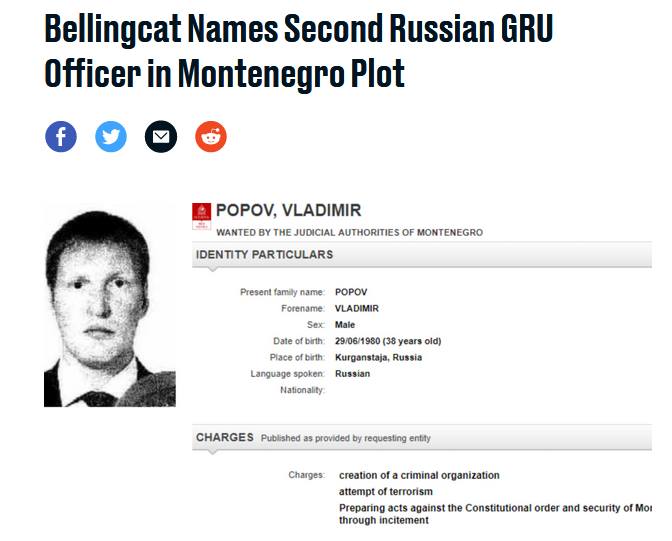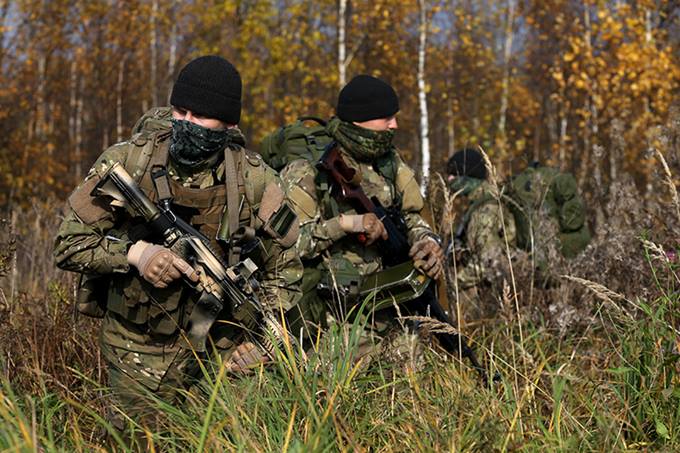Bellingcat has uncovered the identity of a second Russia military intelligence officer involved in a failed 2016 coup d’état attempt in Montenegro. According to the British-based group, Vladimir Nikolaevich Moiseev is the second GRU officer (the first Russian military intelligence officer, Eduard Shishmakov, had been uncovered in the wake of the 2016 events). Both men are being hunted by Interpol and European law enforcement for allegedly organising the coup.
The botched coup was an attempt to stop Montenegro from joining NATO (it occurred one year before the crucial vote). It was scheduled for the day of the parliamentary elections. Besides the two GRU officers, the coup involved the Montenegrin pro-Russian opposition and numerous Serbs. And it’s just one more attempt by the Russian government to influence foreign political processes. The Kremlin’s attitude signals a complete disregard for democratic processes and, more importantly, an aggressive strategy toward its opponents. Moscow prefers to negotiate only with an upper hand. The invasion and illegal annexation of Crimea is a paragon of this strategy. The Russian military first occupied the province and then held elections to decide whether its citizens wished to join Russia.
According to Bellingcat, Moiseev is a Lieutenant Colonel with the GRU, the foreign military intelligence agency of the Russian military. Born in 1980, Moiseev finished his national service with the Russian army and then enrolled at Tyumen Military Engineering Institute, a program that specialises in military engineering programs, ranging from naval construction to signal encryption. Sometime after his graduation, he was recruited by the GRU. He subsequently joined a GRU Spetsnaz special operations unit and fought in the Ossetia-Georgian conflict and the Russia-Georgia War. Assuming the cover of a photojournalist, he then toured Europe for four years (2012-2016) before his involvement in Montenegro.

A photo of Moiseev; Interpol is still utilising his cover-name Vladimir Popov (Facebook).
A rough equivalent of a combination between the U.S. Defence Intelligence Agency (DIA) and National Security Agency (NSA), the GRU, among others, provides Human Intelligence (HUMINT) and Signal Intelligence (SIGINT) support to the Russian military.
Situated in the Balkans, Southeastern Europe, Montenegro is a member of NATO, since 2017. The Montenegrin government is currently in negotiations with the European Union about joining the transnational organisation (it’s already in the eurozone, meaning that it uses the euro as its currency).
Bellingcat is an online investigation group that publishes the findings of amateur civilian journalists. The group came to prominence with its coverage of the war in Ukraine, the shootdown of Malaysian Flight MH17 by Russian-backed separatists, and the poisoning of a turncoat GRU agent and his daughter in the United Kingdom (the poisoning of Sergei and Yulia Skripal resulted in the deaths of two British civilians).
Bellingcat has been cooperating with the Russian investigative group The Insider to unmask the perpetrators and the Kremlin’s involvement.
Already have an account? Sign In
Two ways to continue to read this article.
Subscribe
$1.99
every 4 weeks
- Unlimited access to all articles
- Support independent journalism
- Ad-free reading experience
Subscribe Now
Recurring Monthly. Cancel Anytime.












COMMENTS